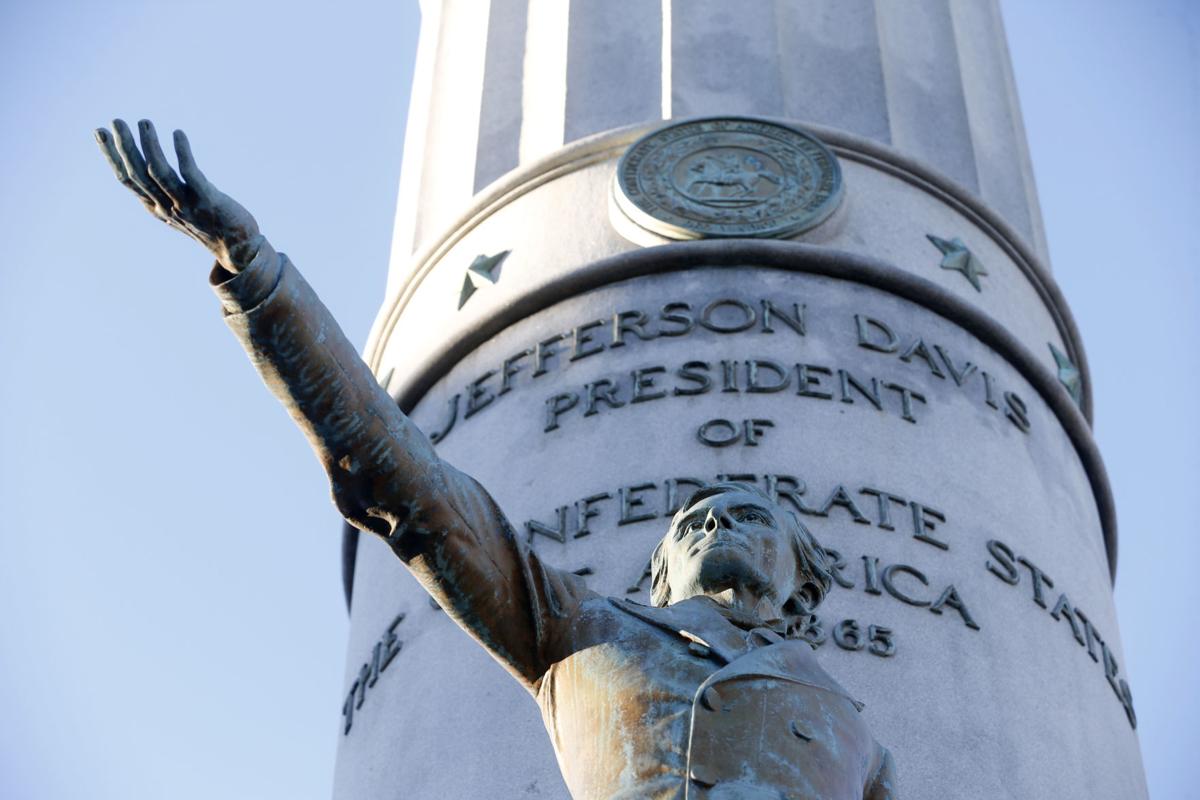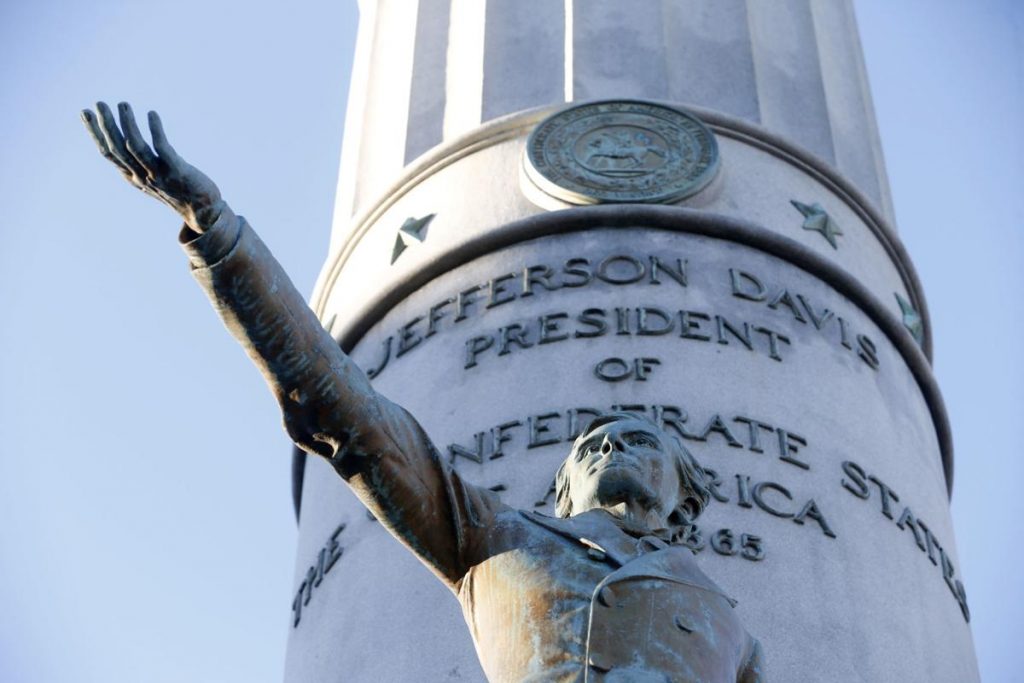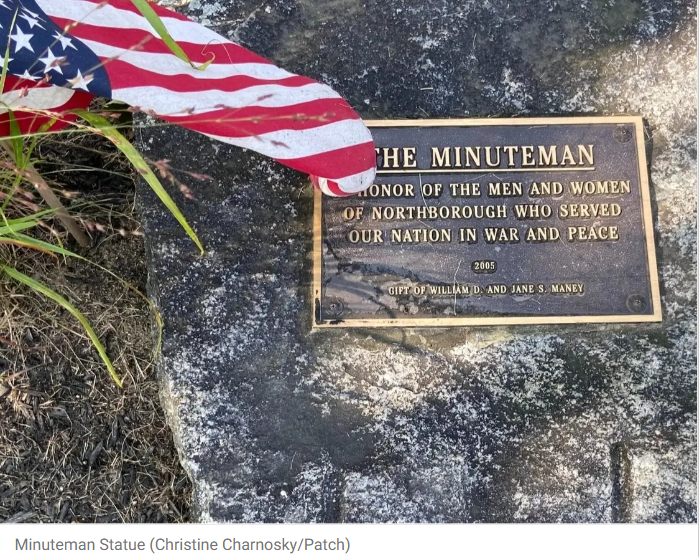VIRGINIA: Bill To Allow Removal of Confederate Statues Goes Forward
RICHMOND, Va. — Virginia localities ready to remove Confederate monuments might soon have the authority to do so.
On Monday, a Senate committee voted along party lines to advance local control legislation that conservative lawmakers have steadfastly blocked in recent years. With Democrats now in control of both chambers of the General Assembly, the idea of letting localities decide whether they wish to remove or alter the war memorials in their jurisdictions is gaining momentum.
“Local control to remove is going to happen,” said Sen. Lynwood Lewis, D-Accomack. “It’s just a question of the process.”
Calls to remove monuments to the Confederacy surged across the South after a Confederate sympathizer massacred nine black parishioners at a Charleston, S.C., church in 2015, accelerating a debate that intensified in Virginia after the Unite the Right rally on Aug. 12, 2017.
That day, a white nationalist who’d attended the protest against removing Confederate statues drove into a crowd of counterprotesters, killing a woman.
Localities eager to debate the issue have run up against state law protecting war memorials from removal and vandalism. Last month, the Richmond City Council voted 6-2 to ask the assembly for the authority to remove the Confederate statues on Monument Avenue. Opponents of the legislation say clearing a path for changes would be akin to the destruction of history.
In presenting her version of the bill, Sen. Mamie Locke, D-Hampton, said permitting the removal of the statues would allow localities to stop honoring Lost Cause mythology.
“These portrayals of Confederate leadership as grand and heroic figures misinforms the public; distorts our understanding of our history; and attempts to gloss over the oppression and injustice the subjects fought a war … to perpetuate,” she said.
Lawmakers on Monday consolidated three proposals and voted 8-7 to advance a bill featuring an amendment Lewis proposed that would require localities wishing to remove or alter a war memorial to undergo a state study.
In the coming weeks, lawmakers are expected to debate whether localities should meet certain conditions, such as the state study or approval by more than a simple majority, before removing any war memorials.
Andrew Bennett Morehead, a spokesman for the Virginia Division of the Sons of Confederate Veterans, said the heritage group is adamantly opposed to any change in the law, but is giving consideration to how the legislation can be shaped.
After Monday’s Senate Local Government Committee hearing, he said the group appreciates that Lewis had submitted papers to require further study by the Virginia Department of Historic Resources before localities can remove a memorial.
“It gives true heritage organizations the opportunity to form a game plan for the best way to … put these monuments on private property and remain there in perpetuity,” Morehead said.
While the bill could bring sweeping changes to the landscape in Richmond and elsewhere in Virginia, the statue of Robert E. Lee on Monument Avenue is owned by the state. It would not be subject to local control.
The committee hearing was well attended by Charlottesville residents with a connection to the white nationalist rally there in 2017. Among them was Kristin Szakos, a former Charlottesville City Council member who voted in 2017 to remove a statue of Lee from a local park.
Szakos voiced opposition during the hearing to Lewis’ amendment, telling lawmakers that Charlottesville undertook its own study before the council voted 3-2 for removal.
“To force Charlottesville and other cities into a long, protracted process now would not only delay justice, but could further endanger the lives of our leaders and citizens,” she said, noting that she and other city officials began receiving violent threats from people opposed to statue removal.
A Charlottesville circuit judge last month ordered the city to pay $365,000 for plaintiffs’ legal fees after Charlottesville lost a lawsuit that opponents of removal brought against the city.
A spokesman for the plaintiffs in that case, Charlottesville-based lawyer Charles Weber, said in a recent statement that the plaintiffs oppose granting local control and fear changing the law could lead to the removal of memorials to Vietnam War veterans.
“Stripping these war memorials from the public square will not improve race relations or the lives of anyone in the community,” he said. “Instead, doing so will simply break faith with military veterans everywhere and alienate many Virginians who understand our history and work constructively to promote justice in our communities.”
Sen. Siobhan Dunnavant, R-Henrico, condemned the violence that arose in Charlottesville, and said she prefers erecting new monuments to removing old ones.
“I think correcting that narrative is better than destroying it. I think we’re better than that,” she said. “And I’m going to say to localities: The reason that people came to Charlottesville is because a decision was made, not because a monument was there.”
Lisa Draine, the mother of a University of Virginia student who was injured in the vehicle attack that day, fought back tears Monday as she described the injuries her daughter suffered.
“These statues are not benign. They are magnets for hate and violence,” she said. “I’m asking you to stand up to people who say this is about heritage and legacy. I’m asking you to think about your legacy and to protect children in the future.”
–richmond.com




